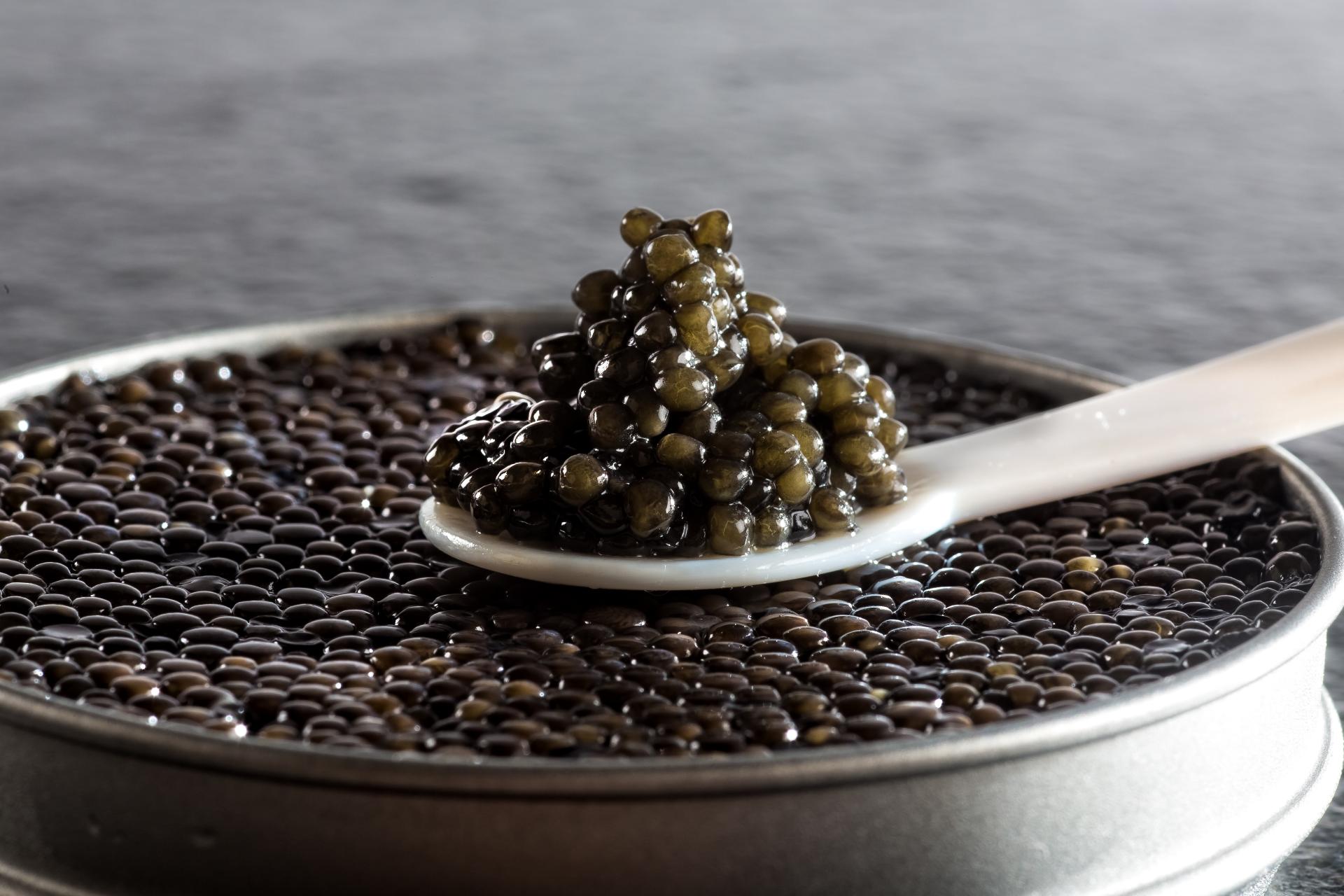
Have you ever tasted caviar? This Saturday you will have the chance as we welcome Chef Makoto Okuwa to The Brasserie.
Before raw oysters, before Champagne, even before truffles were deemed a delicacy, caviar was coveted by kings and the aristocracy. Ancient Greeks, Romans and Russian tsars were all known to splurge on caviar, which literally means unfertilised salt-cured fish eggs.
Did you know that the most expensive caviar on record sold for $35,000 per kilo?
The good news is that sustainable methods of collecting caviar are now being introduced into the industry, where the eggs are massaged out of the fish to produce “no-kill” caviar.
It’s known to be a delicacy and there is much hype, but few people fall for the little black mound at the first bite. It’s a bit salty and a whole lot fishy. It takes many people three or four tries to really savour the flavour.
However did you know that these little eggs could be very beneficial to your health when eaten in moderation? Here are some things that you should know about these exquisite tiny black pearls.
Improve heart health by eating just one gram of caviar each day. Caviar is brimming with omega-3 fatty acids and it’s these acids that help to reduce blood clotting, protect the arteries from hardening, and can help reduce your chance of a heart attack, stroke, or a clogged artery. They could also lower your blood pressure and triglycerides too. Just a single teaspoon of caviar can be effective. The American Heart Association puts their seal of approval on this fishy egg.
Caviar is rich in selenium. Selenium is a vital mineral the body needs. Inside, it pairs up with vitamin E in the body. Together, they protect the cells from the damage that is caused by free radicals and other compounds. These compounds are the ones that lead to heart disease and in some cases, cancer. This mineral can boost the immune system and help to support overall cell growth.
B12 makes red blood cells in the body. It’s also a great help so that you can use your fatty acids properly. Many vegetarians and vegans don’t get enough of this necessary vitamin as it is water-soluble. However, caviar is loaded with B12, and it can help meet the daily consumption requirements.
Historically, caviar was prescribed to alleviate depression. Hey, wouldn’t you feel better if someone gave you caviar? It’s not as fishy as it sounds: recent studies show that high doses of omega-3 fatty acids – caviar is rich in omega-3s – may alleviate symptoms of depression and bipolar disorder.
The finest, most expensive caviars are older, larger eggs that are lighter in colour. Lower quality caviar is younger, with a less intensely fishy flavour, and darker in colour. It’s a good thing, too, for caviar newbies, who are more likely to start on the cheaper, milder stuff.
We can’t wait to receive your feedback on Chef Mokoto Okuwa’s caviar recipe this weekend!

